Maika Monroe Opens Up About Crafting a Nuanced Final Girl in Her 'Longlegs' Character Lee Harker
The contemporary scream queen stars opposite Nicolas Cage in this year’s runaway horror hit.
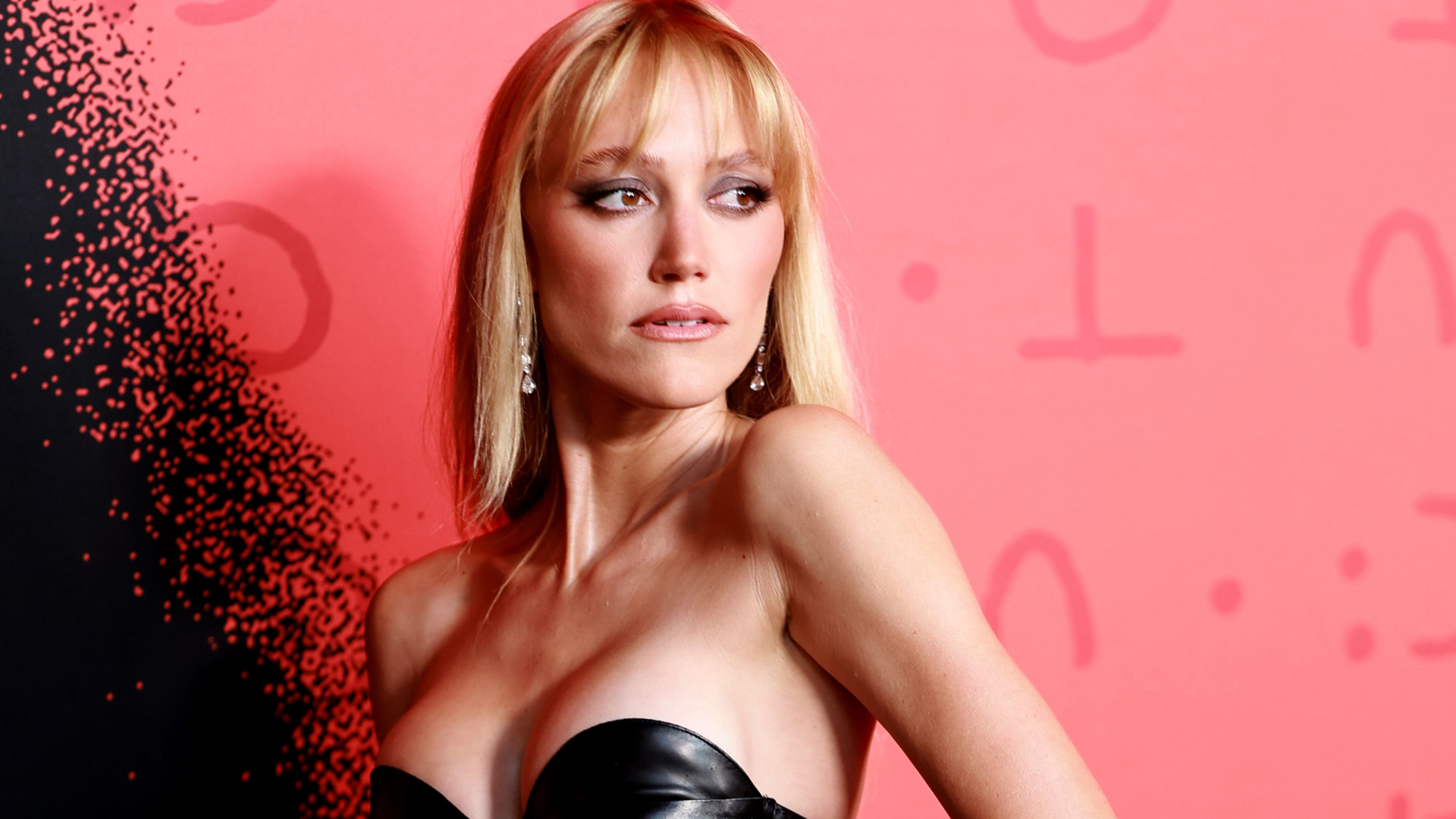
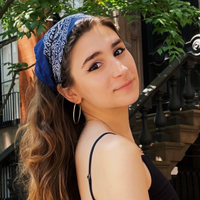
When a young girl asks Maika Monroe’s character Lee Harker if it’s “scary being a lady FBI agent” in Longlegs, she succinctly replies, “Yes, it is.” The new horror sensation from Osgood Perkins follows Lee’s tireless investigation into the return of a mysterious serial killer who leaves a trail of ciphers (Nicolas Cage), while she’s also processing the terror from a trauma she thought she’d suppressed. Monroe, though, may as well be fearless.
Since her 2014 breakout roles in It Follows and The Guest, two indie hits that became contemporary classic horror movies and helped to pioneer the “elevated horror” genre, the California-native has been a bonafide scream queen. ( Before that, she was one of the sole young women to pursue a career in the extreme sport of kiteboarding.) But in the 10 years since becoming one of the most captivating performers in horror,, Monroe’s largely remained an indie darling with an eye for emerging, visionary directors purposefully choosing complex roles that toy with the concept of the final girl.
She continues that legacy with Longlegs. While Lee has committed to taking on a complicated, dangerous case, she’s immensely insular, calculated, and timid—unlike other thriller icons who carry a certain ambitious strength about themselves (consider the easy comparison of Clarice Starling in The Silence of the Lambs). Perkins allowed Monroe to craft much of Lee herself, allowing the character to be more realistic and nuanced. Monroe was enticed by the film to begin with because she could see how “special” the world the director built was, and because she found its feminist horror bent that questioned traditionalist religious views of women “very intriguing.”
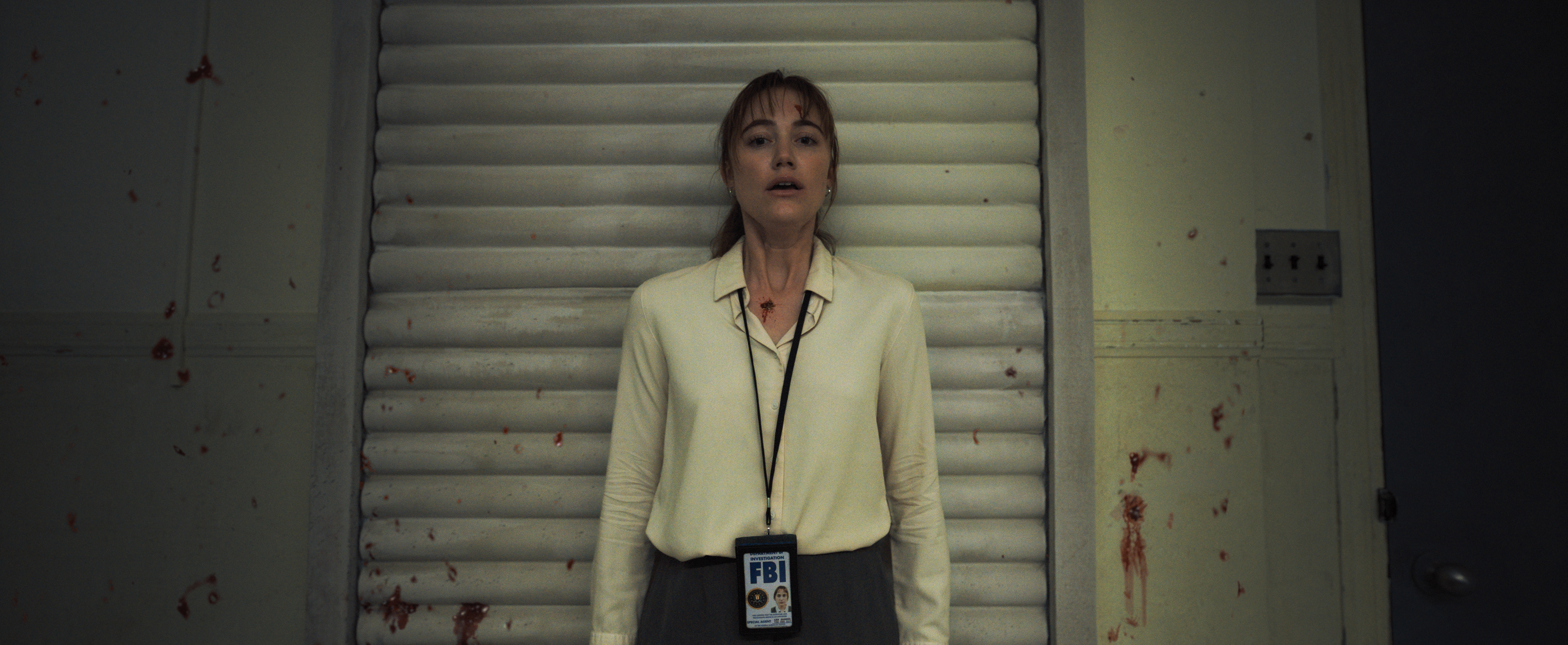
Maika Monroe as Lee Harker conducting an interrogation in Longlegs.
While Monroe didn’t see her co-star Cage until well into the shoot, considering their little shared screentime and because he went method playing the Satanic Longlegs, she says she “was in awe” the entire experience. “Working with Nic, it’s something I’ll never forget,” she tells Marie Claire. “He’s a person I grew up watching—an absolute icon—and then him completely transforming for the role, it felt like a once-in-a-lifetime experience.”
The success Longlegs has garnered is a rarity—opening to $22.6 million at the box office, the biggest debut for an independent horror movie in a decade—after its intriguing, months-long marketing campaign made it one of the year’s most highly anticipated releases. It’s not unlike the moment Monroe experienced 10 years ago. But she’s game for it all, including whatever scary project comes her way next—as long as she can “finish the day, go home, have a drink, and watch a rom-com” to pull out of her character.
Here, Monroe spoke to Marie Claire about how she crafted Lee, her affinity for horror, and being dubbed a scream queen.
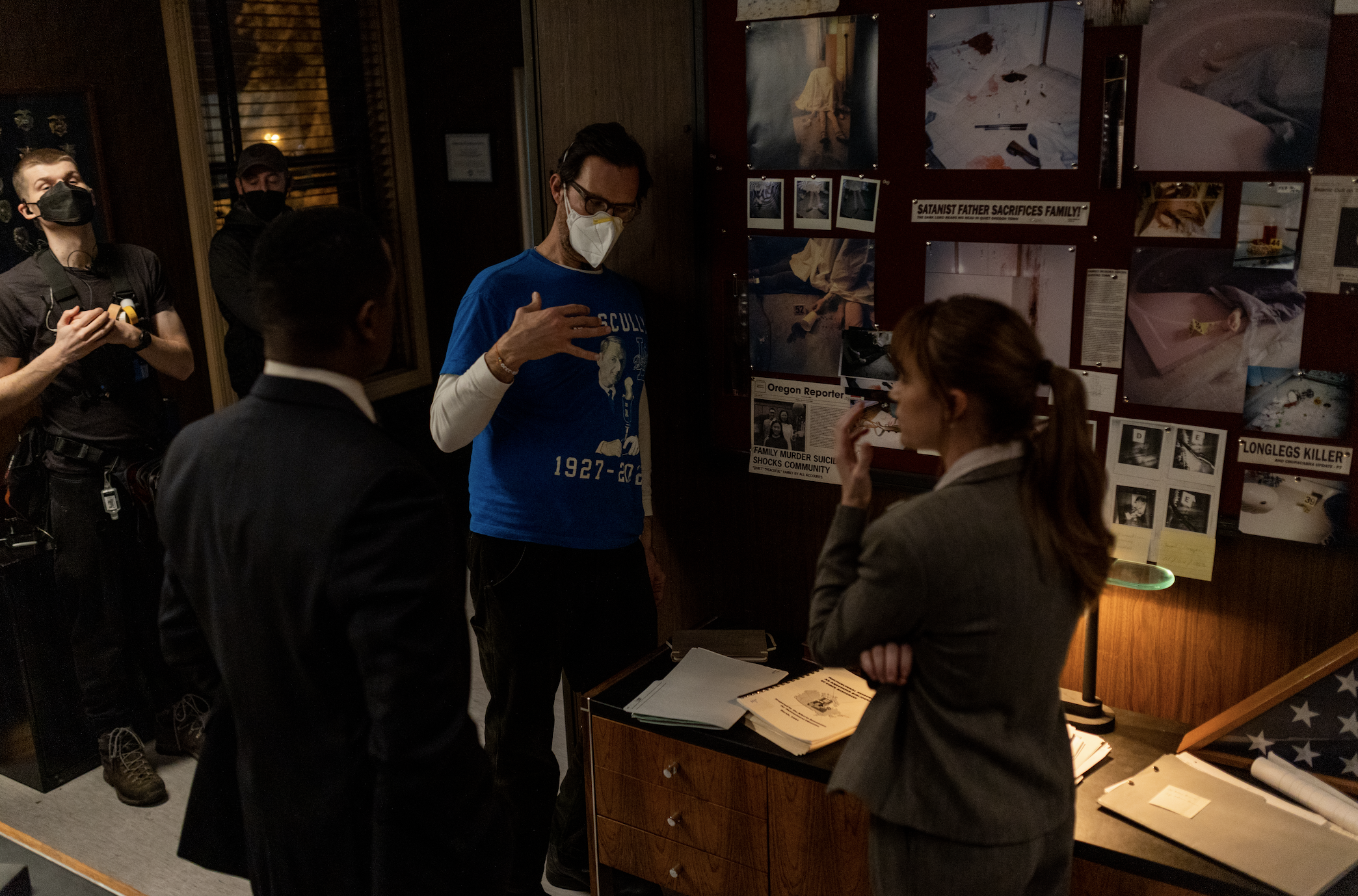
Writer/director Osgood Perkins and stars Blair Underwood Maika Monroe talk on set.
Marie Claire: In the past, you’ve said you considered quitting acting, but when 2019’s Villains came along, it got you excited about the craft again. Is Longlegs another project where you felt in touch with that passion again?
Get exclusive access to fashion and beauty trends, hot-off-the-press celebrity news, and more.
Maika Monroe: I did so many projects back-to-back and had some not-so-great experiences. And I think [following] that was like, ‘I want to be very specific on the filmmakers that I work with, the people that I surround myself with.’ Because it's a very intimate place, very vulnerable place. I think that stepping onto the Villains set, there were two directors, they were so involved, and it was such a collaboration. We had so much fun on set and it just brought back this spark.
[It was] similar with Longlegs where it's just being on a set where you're like, ‘I feel like we're making something special.’ And working with a director who has this super strong vision and yet still is so open to all your ideas. It was the best.
MC: Perkins has said he was very receptive to you crafting a great deal of Lee Harker’s yourself, and the character’s a lot more reserved and gentler than the typical female lead in a detective movie. How did you go about bringing Lee to life?
MM: A really important part was to focus on her childhood. I think for anyone, their childhood is very informative to who they become. In therapy, always when I started with a new therapist, they're like, ‘Okay, when you were 5-years-old, what happened?’ And I'm like,
‘Oh, my God. Okay! Yeah!’ Especially for Lee, her childhood was very traumatic, and I think that's very informative to how she moves through life, so that’s where I started with her and discovering her.
There were certain moments in the script, whether the audience picks it up or not, that I wanted to have flashes of the previous trauma trickle in. She suppresses a lot, a lot, a lot, which is very common for people to go through incredibly traumatic experiences, so that was really important to me.
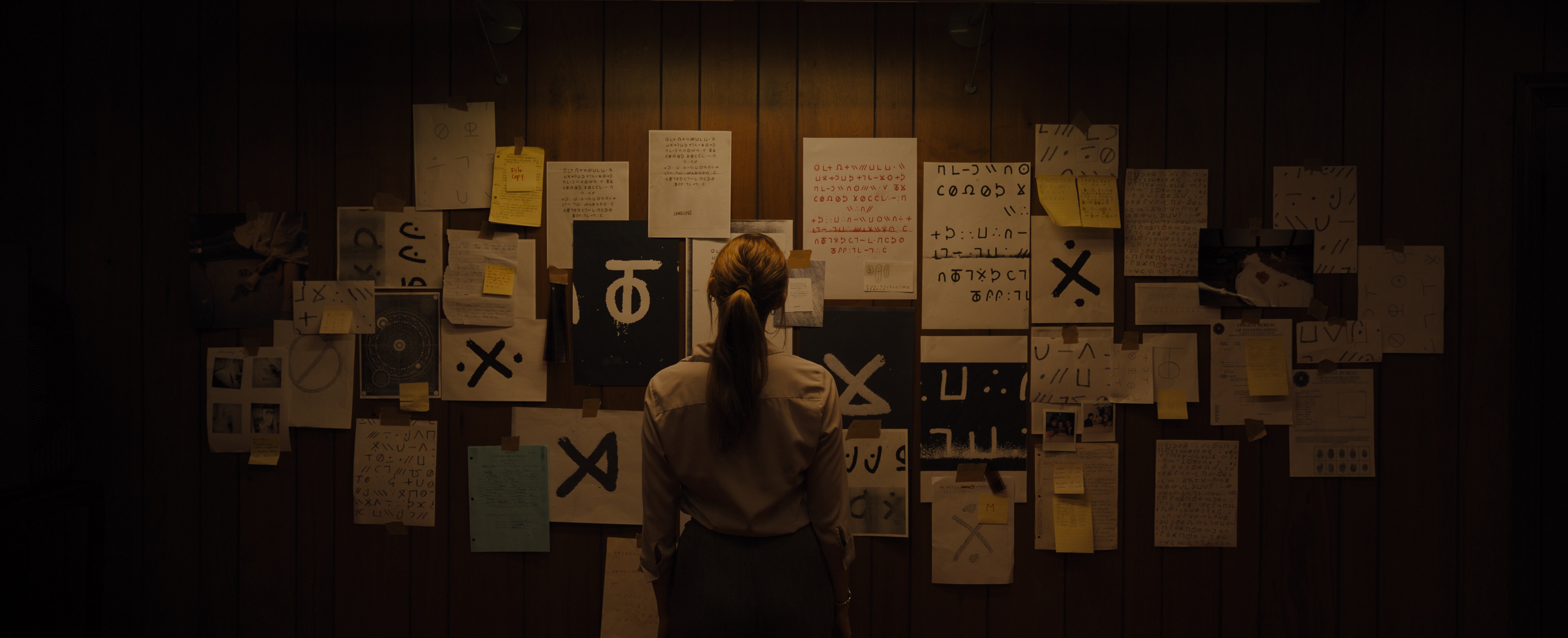
Lee Harker (Maika Monroe) examines the serial killer's ciphers.
MC: You’ve said that you drew a lot of inspiration from Lisbeth Salander in The Girl with the Dragon Tattoo, but were there any other thrillers that you revisited while preparing?
MM: I rewatched a lot of crime thriller movies that I saw growing up: Se7en and Memento. I don't know if any necessarily helped with the character—more maybe the world and stepping into the FBI of it all. It is one of those moments where, being on this set, I felt like a child again on my first movie set because I was so excited. It was like a dream to be an FBI agent on these crime scenes.
MC: Did you make a playlist or anything like that to get into Lee’s headspace?
MM: Actually, Oz made a playlist that had a bunch of T-Rex and other niche, little rock bands. I love having music to help get into character, into the zone, so that was great to have.
MC: It’s hard to imagine Lee herself ever listening to music, though.
MM: No, I don't think she does. I really don't. I think it's very quiet.
MC: Lee is similar to a lot of the other horror movie characters you’ve played, in that they don’t necessarily fit the traditional, strong final girl trope. Is that more nuanced approach to such an iconic genre figure something you’ve connected with?
MM: Definitely. The horror genre has come such a long way. Even just in the past 10 years, to me, [horror has been] some of the most interesting roles that I read, most interesting scripts. It's just not this sort of typical one-note character—whether it's the Tough Girl or this or that. It's much more complicated and there's such a beauty in that. I love roles like that.
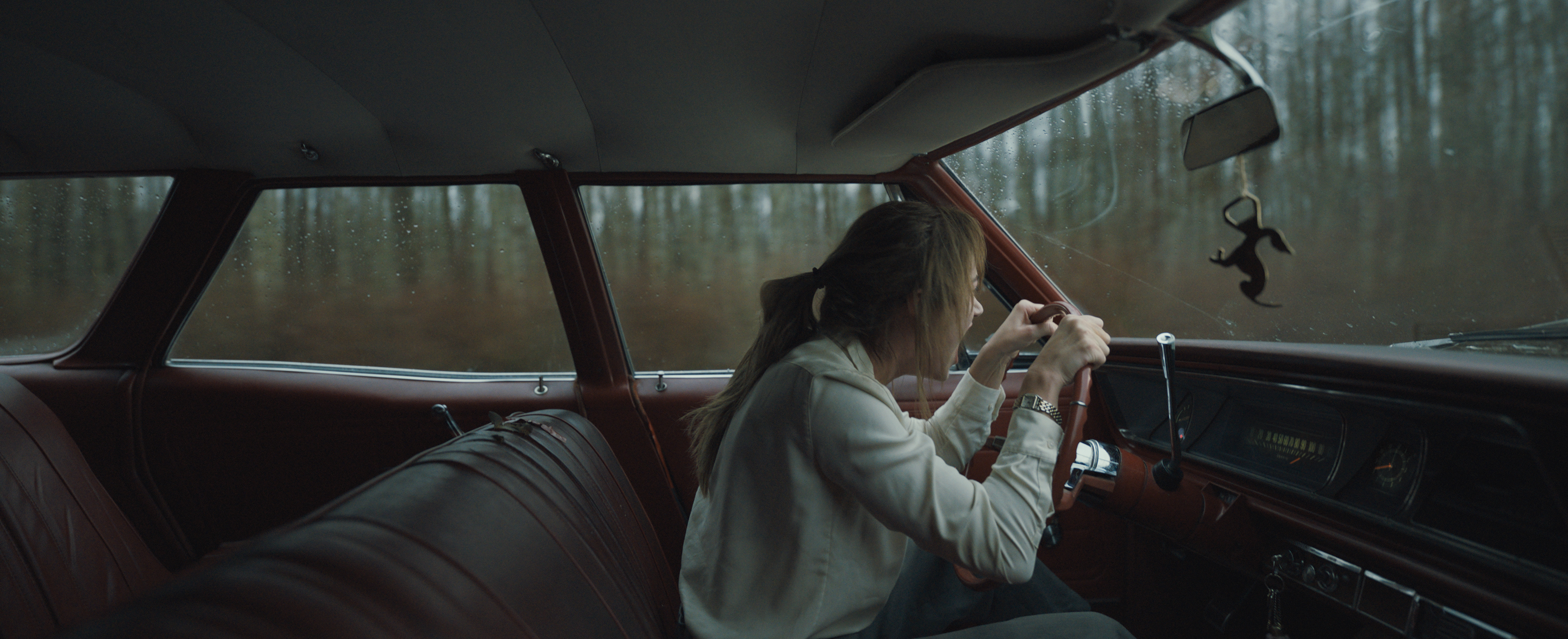
Lee Harker drives away after a difficult encounter.
MC: Throughout her investigation, Lee is in some ways drawn to the case and the darkness behind it more and more. With all of these horror projects you choose, do you feel drawn to dark concepts at all or see horror as a way to process our reality?
MM: That's what I love about this genre. It's using real-life trauma and then putting it into these insane, preposterous stories, but yet grounded in reality. That’s definitely something that draws me to it. I really don't know why— there's something in these roles that's challenging, that's fulfilling, that I keep coming back for more.
MC: A lot of the final girls you’ve played are often outsiders in a way. Before you started acting, you were an accomplished kiteboarder and one of the few girls in the sport. Did you feel like an outsider growing up and do you think that’s informed your interest in these characters?
MM: I mean growing up I was such a nerd, such a dork. I had braces for way too long. When I went to high school, I had one other super artsy friend. We were the best of friends, but again, I was never the popular girl, never the cool girl. I never really felt comfortable. And that's sort of why kiteboarding came into my life. That was something that I loved. I finished high school online my senior year to go do that. And then acting came in. I'm sure that has played a part in roles that I connect with or relate to.
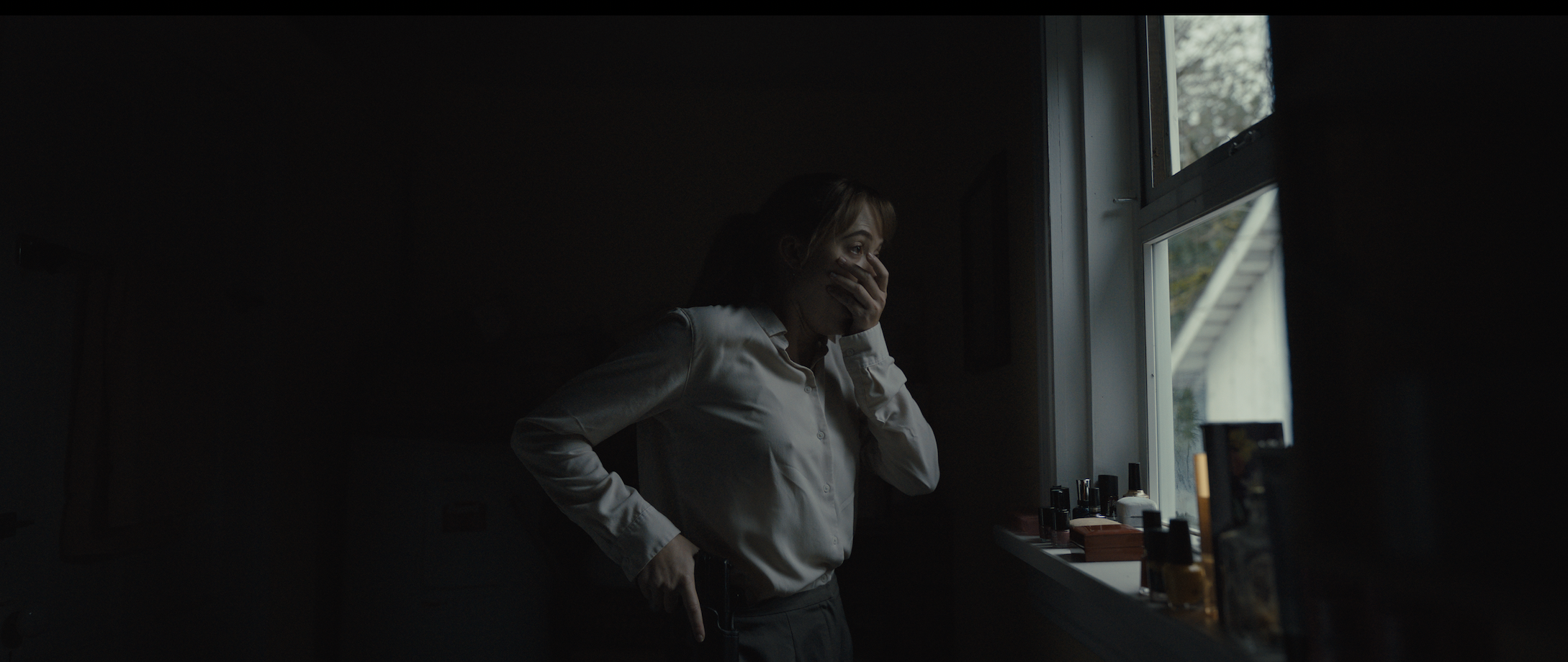
Monroe's Lee Harker visits her childhood home.
MC: Is there a final girl you wish you could have played?
MM: I don’t know if this is a final girl—I've been talking about this movie so much because I'm so obsessed with it. Do you know the French movie Titane?
MC: Yes! Julia Ducournau is one of my favorite filmmakers and her movie Raw is one of my favorites.
MM: Yes, both those movies, absolutely obsessed. Julia, the director, I think is fucking brilliant and those two roles in both those films, I'm like, ‘What incredible female roles.’ Those are to die for. I can't wait to see what she does next, too. I think she's pushing the needle in a way that is so necessary for film.
MC: You’ve also been in a lot of movies that people describe like, “They just don’t make movies like this anymore!” Your Instagram is full of throwback shots of actors and photos of Stanley Kubrick on set. Is choosing projects like that intentional?
MM: I feel like it just happened. At this point in my career, the filmmaker is what I look at and what's most important to me. With Watcher, I saw the director [Chloe Okuno]’s short film called Slut, which is incredible. You could see she had such a vision and this throwback horror feel. It was such a strong view, and it was so beautiful. I was like, ‘I need to work with this person.’ So I think I pay attention to upcoming filmmakers and try to watch a lot of shorts and see what the next generation coming in is doing. [I like] finding things that are unique and pushing the needle forward and that make people think in a different way maybe.
That's what I love about this genre. It's using real-life trauma and then putting it into these insane, preposterous stories, but yet grounded in reality.
MC: You mentioned Julia Ducournau, but who are other rising filmmakers you’re paying attention to and would like to work with?
MM: Julia’s up there. I loved Possessor by Brandon Cronenberg. I thought that movie was exceptional. Ari Aster is incredible. He's not necessarily new, but he's just so brilliant. I think there's this next wave of horror directors that are amazing. It's a very exciting space to be in.
MC: Do you have aspirations to get behind the camera yourself?
MM: I would love to. It's something I've thought about for a long time, but it didn't feel right, or I didn't feel ready. But at the end of last year, I shot my first short film. It was incredible and challenging, and I learned so much, so that's a place that I want to very slowly step into.
Also, producing is something that I'm going to start getting into—just being more involved because why am I not? I think it's a space that I really want to step into, so I'm excited.
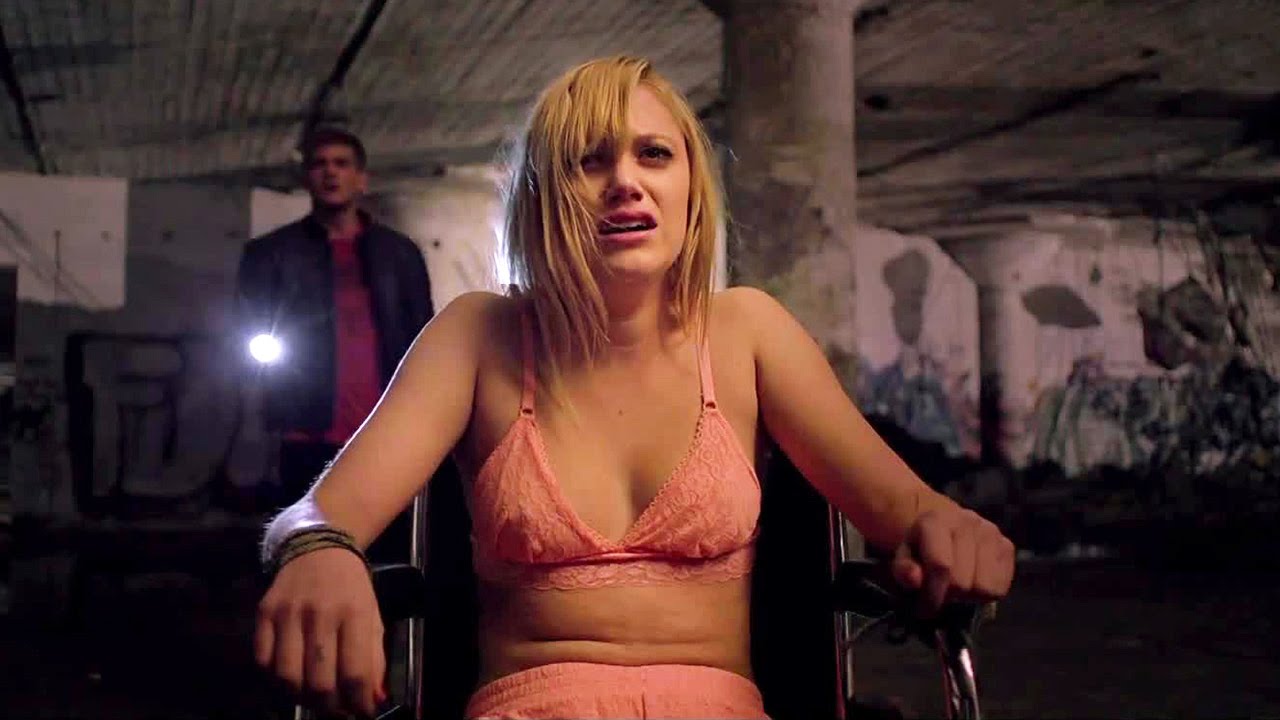
Maika Monroe as Jay Haight, who is haunted by an invisible force, in the 2014 film It Follows.
MC: This year is a decade since It Follows and The Guest premiered at festivals, marking your breakout roles and being dubbed a scream queen. Does it feel like a full circle moment to be in the most highly-anticipated horror movie of the year now?
MM: I can't really believe it. I'm still like, ‘What's happening?’ But it's just been absolutely incredible to see the response start coming in, and people having such strong reactions to it and loving it. I mean, that's all you can hope for in making a film. I feel very lucky.
MC: If you could go back to 2014 before the release and pandemonium of your first two hit movies, what would you tell yourself?
MM: It's going to be okay. Oh, man, there are so many ups and downs, but you just got to trust the process.
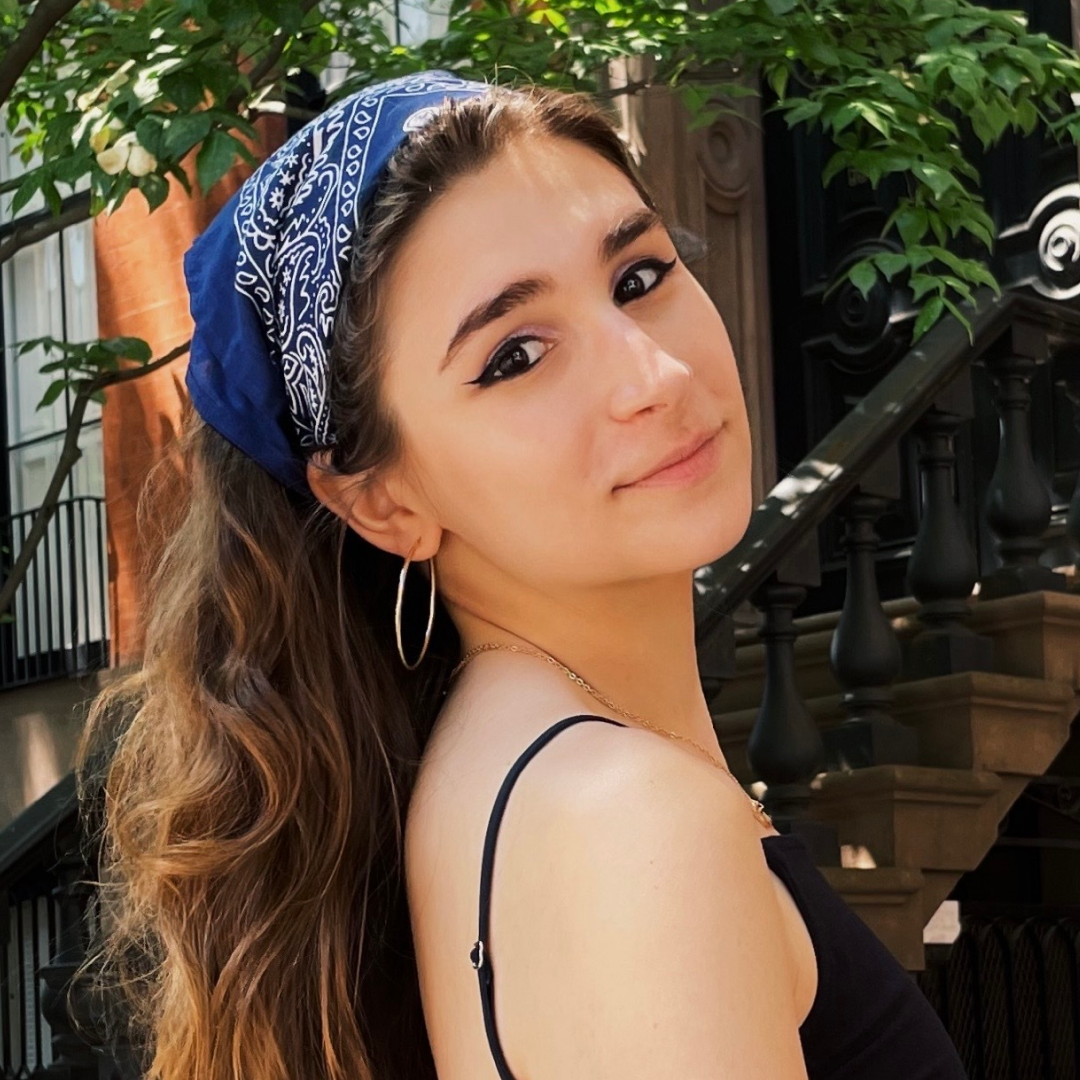
Sadie Bell is the Senior Culture Editor at Marie Claire, where she edits, writes, and helps to ideate stories across movies, TV, books, music, and theater, from interviews with talent to pop culture features and trend stories. She has a passion for uplifting rising stars, and a special interest in cult-classic movies, emerging arts scenes, and music. She has over nine years of experience covering pop culture and her byline has appeared in Billboard, Interview Magazine, NYLON, PEOPLE, Rolling Stone, Thrillist and other outlets.